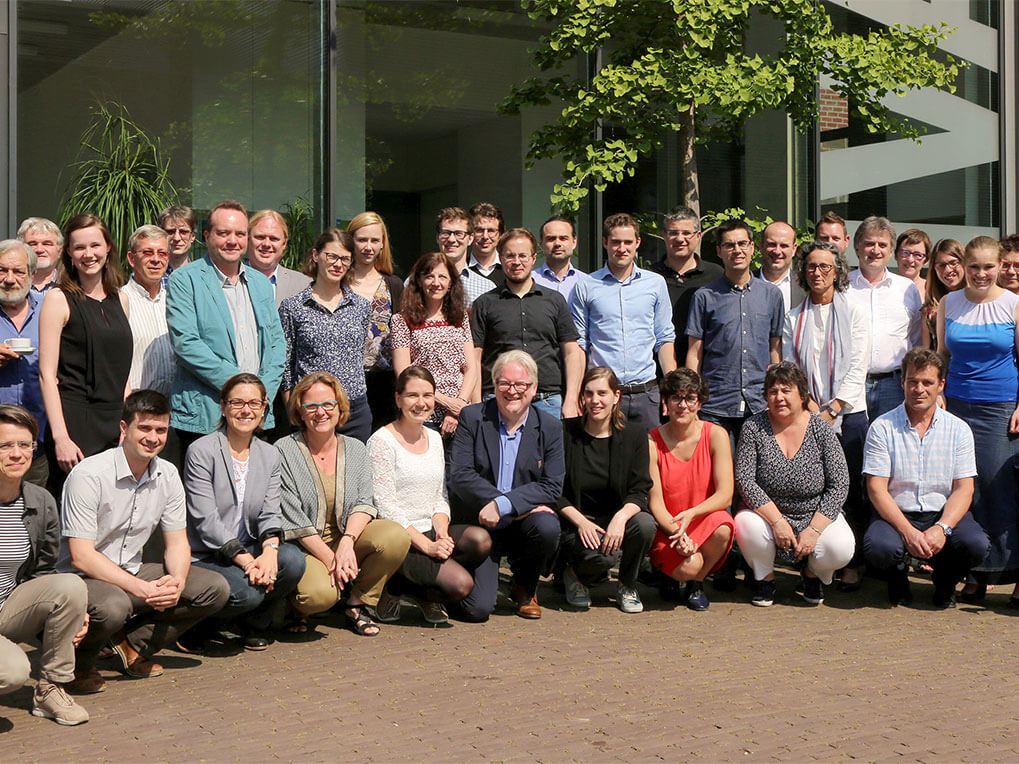News
Project Focus: InGRID-2
A newly launched European-wide social sciences research infrastructure


This project has received funding from the European Union’s Horizon 2020 Research and Innovation Programme1. InGRID is a network of European research infrastructures.
A research infrastructure is a facility that provides the scientific community with resources and services to conduct top-level research in their respective fields. In 2017, the network has received funding for another 4-year span by the European H2020-programme: the InGRID-2 project. InGRID-2 consists of a consortium of 19 key actors from European research centres and universities. Integrating, expanding and innovating the infrastructures-in-existence is the key goal of the InGRID-2 project. Serving as a significant actor, LISER will facilitate the project.
Europe is confronted with another “climate warming” - a social one. Despite the fact that the European economy is showing mild signs of improvement, the past crisis is far from over and people across Europe are still suffering under the consequences. Many Europeans have experienced decreases in living standards during the crisis, resulting in poverty, but also growing inequalities between regions, age groups and household types. These crisis experiences confirm to a certain extent ongoing trends related to globalisation, financialisation, demographic challenges, welfare-state retrenchment, technological changes and skills mismatches in the labour market as well as changing power relations between labour and capital.
In this context, policy at the European level is increasingly defined as a key issue in order to tackle growing social problems.
InGRID-2 serves the social sciences community that aspires to make an evidence-based contribution to this European policy challenge of inclusive growth. It is a social sciences community that focuses on social in/exclusion, vulnerability at-work and related social and labour market policies from a European comparative perspective.
InGRID-2 will involve three types of activities. Firstly, it will provide access to social science installations to researchers based on a unified and integrated grant system. Secondly, InGRID-2 will coordinate networking activities to set up a knowledge exchange and transfer within the dedicated community-of-interest by organising 18 training activities, 11 expert discussions and 3 special interest groups. Finally, research activities will be conducted with the aim of enhancing and enriching the technical quality of the research distributed infrastructure.
LISER will be involved in many areas covered by InGRID-2, significantly intensifying its participation compared to the former FP7-funded InGRID project (2013-2017). So, the institute will welcome researchers from all over the world (2017-2021) for short research visits. It will also organize several workshops and conduct research on: (i) migrant’s social rights (2018); (ii) the combination between EUROMOD and LIAM2, two important microsimulation platforms targeting respectively short-term and long-run analyses (2018-2020); (iii) mid-term projections through microsimulation modelling (2018-2020); (iv) poverty and material deprivation (2020); (v) the theory and practice of programme evaluation by the use of complex design methods (2019) and (vi) dynamic microsimulations (2017-2021). The latter activity will reinforce the synergy between developers aiming at analyzing e.g. the long-term distribution effects of population ageing. It will also include a first operationalization of an e-resource platform (listing of models, applications, development and simulation tools) to be developed with key actors, including the International Microsimulation Association, hosted by LISER since 2015.
1. under Grant Agreement no 730998

Reseach Partners
| LISER (LUXEMBOURG) DEPARTMENT LIVING CONDITIONS | CENTRE D’ETUDES DE L’EMPLOI ET DU TRAVAIL –CNAM (FRANCE) |
| TARKI (HUNGARY) | CEPS (BELGIUM) |
| UNIVERSITY OF AMSTERDAM (THE NETHERLANDS) AMSTERDAMS INSTITUUT VOOR ARBEIDSSTUDIES | UNIVERSITY OF PISA (ITALY) DIPARTIMENTO DI ECONOMICA E MANAGEMENT |
| UNIVERSITY OF STOCKHOLM (SWEDEN) SWEDISH INSTITUTE FOR SOCIAL RESEARCH | UNIVERSITY OF SOUTHAMPTON (UNITED KINGDOM) SOTON |
| UNIVERSITÉ DE TRÈVE (GERMANY) WIRTSCHAFTS- UND SOZIALSTATISTIK | CROSS-NATIONAL DATA CENTER IN LUXEMBOURG - LIS (LUXEMBOURG) |
| CENTRE D’ESTUDIS DEMOGRÀFIES (SPAIN) | UNIVERSITY OF MANCHESTER (UNITED KINGDOM) SCHOOL OF SOCIAL SCIENCES |
| UNIVERSITY OF ANTWERP (BELGIUM) CENTRUM VOOR SOCIAL BELEID HERMAN DELEECK | CENTRAL EUROPEAN LABOUR STUDIES INSTITUTE (REPUBLIC OF SLOVAKIA) |
| UNIVERSITY OF ESSEX (UNITED KINGDOM) INSTITUTE FOR SOCIAL AND ECONOMIC RESEARCH | PANTEION UNIVERSITY OF SOCIAL AND POLITICAL SCIENCES (GREECE) |
| DIW BERLIN (GERMANY) | NATIONAL RESEARCH INSTITUTE, (POLAND) CIOP – CENTRAL INSTITUTE FOR LABOUR PROTECTION |






